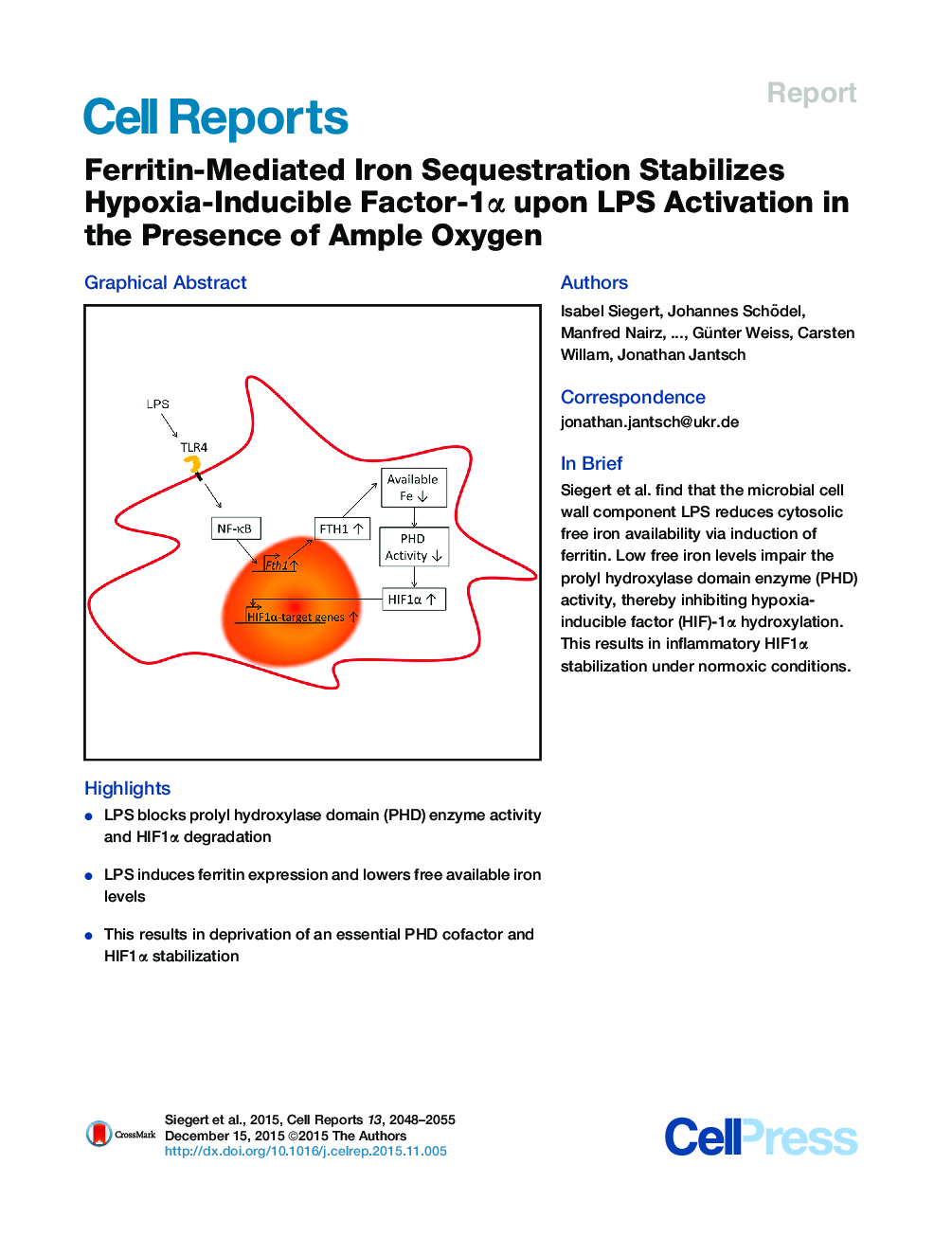| Article ID | Journal | Published Year | Pages | File Type |
|---|---|---|---|---|
| 2040632 | Cell Reports | 2015 | 8 Pages |
•LPS blocks prolyl hydroxylase domain (PHD) enzyme activity and HIF1α degradation•LPS induces ferritin expression and lowers free available iron levels•This results in deprivation of an essential PHD cofactor and HIF1α stabilization
SummaryBoth hypoxic and inflammatory conditions activate transcription factors such as hypoxia-inducible factor (HIF)-1α and nuclear factor (NF)-κB, which play a crucial role in adaptive responses to these challenges. In dendritic cells (DC), lipopolysaccharide (LPS)-induced HIF1α accumulation requires NF-κB signaling and promotes inflammatory DC function. The mechanisms that drive LPS-induced HIF1α accumulation under normoxia are unclear. Here, we demonstrate that LPS inhibits prolyl hydroxylase domain enzyme (PHD) activity and thereby blocks HIF1α degradation. Of note, LPS-induced PHD inhibition was neither due to cosubstrate depletion (oxygen or α-ketoglutarate) nor due to increased levels of reactive oxygen species, fumarate, and succinate. Instead, LPS inhibited PHD activity through NF-κB-mediated induction of the iron storage protein ferritin and subsequent decrease of intracellular available iron, a critical cofactor of PHD. Thus, hypoxia and LPS both induce HIF1α accumulation via PHD inhibition but deploy distinct molecular mechanisms (lack of cosubstrate oxygen versus deprivation of co-factor iron).
Graphical AbstractFigure optionsDownload full-size imageDownload as PowerPoint slide
